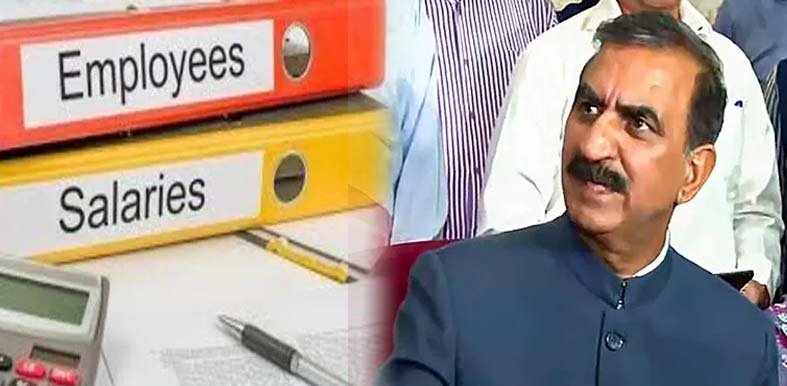Shimla/Dharamshala (S Gopal Puri)
For a government employee, a promotion is not merely an upgrade in rank but the recognition of years of his or her life spent for serving in different roles. A posting after a promotion is more than an assignment. It represents growth and a cherished moment for the family.
These milestones are pinnacle of professional and personal pride. However, when these aspirations are delayed, they leave behind more than frustration, sowing seeds of disillusionment and impacting lives well beyond the professional realm.
In Himachal Pradesh, the corridors of various offices are currently clouded with murmurs of discontent. Officers in key departments are grappling with mounting frustration as promotion files lie stagnant in administrative red tape. The ripple effects of these delays extend from the financial to the emotional, leaving careers suspended in uncertainty.
System caught in its own machinery
Promotion delays in five to six key departments have reportedly hit a bureaucratic wall, with files awaiting clearance at various levels, including state’s top office and secretarial desks. While some argue these delays are the result of processes, others suggest they may be an intentional strategy by the debt-ridden state government to curb financial outflows linked to salary hikes and benefits.
The speculation does little to ease the growing discontent. An officer waiting for a promotion remarked privately, “Every delay steals away our professional dignity. It’s not just a financial setback.”
Annual confidential reports: A procedural quagmire
Well-placed sources said that adding to the chaos is the issue of incomplete Annual Confidential Reports (ACRs). These reports, a vital prerequisite for promotion approvals, remain unfinished due to delays by reporting and reviewing authorities.
While officers are required to submit their ACRs by March every year, but many find themselves chasing superiors to ensure timely evaluations.
Few promotions are pending since early 2024, affecting seniority, salary increments, and, ultimately, retirement benefits, said sources. The resulting financial strain and career stagnation are particularly harsh for those nearing the twilight of their service years.
Uneven playing field
Though a IAS & HAS officers both have been awaiting good postings with promotions, the delays have deepened the divide between IAS, HAS and state service officers. While IAS and HAS officers get time-bound increments in their salaries, if not promoted and posted, state officers are left to navigate a maze of delays and disparities.
Officers in larger departments like police and PWD have opportunities to rise from Sub-Inspector to DIG or SDO to Engineer-in-Chief. Conversely, those in smaller departments such as Fire Services, Public Information and Language and Art & Culture face stagnation, as they get just one or two promotions in their entire careers.
Is MACP need of the hour?
The effects of delayed promotions are not confined to the workplace. They cast a long shadow over an officer’s financial security, especially post-retirement.
Unlike central government employees, state officers in Himachal Pradesh lack access to the Modified Assured Career Progression (MACP) scheme, which offers financial upgrades after 10, 20, and 30 years of service.
The emotional toll is equally significant. As one senior officer put it, “Promotions aren’t just about money—they’re about morale”.
The implementation of MACP scheme could alleviate some of financial uncertainties faced by state officers. Streamlining ACR process and timely reviews can improve procedures.
A demoralised workforce?
The delays are not merely an administrative lapse; they may risk undermining governance itself. A demoralised workforce cannot function at its best, and this inefficiency inevitably seeps into public service delivery.
Welfare schemes and development projects slow down, affecting the very citizens the administration is meant to serve.
Stakes high for ruling Congress
For the ruling Congress government, the stakes are high. Having promised to be the guardian of employees’ interests, the party may face criticism over its ability to resolve these grievances.
The opposition, led by the BJP, is already sharpening its knives, framing the Congress government as inefficient and indifferent to administrative welfare.
Few vernacular media houses have lauded the delay in promotions as a political masterstroke, but this narrative may not hold true.
Criticism is essential for maintaining a balance of power in society and fostering good governance. Media outlets must exercise caution and avoid publishing content that could mislead societal leaders, potentially jeopardising their careers and future prospects.






